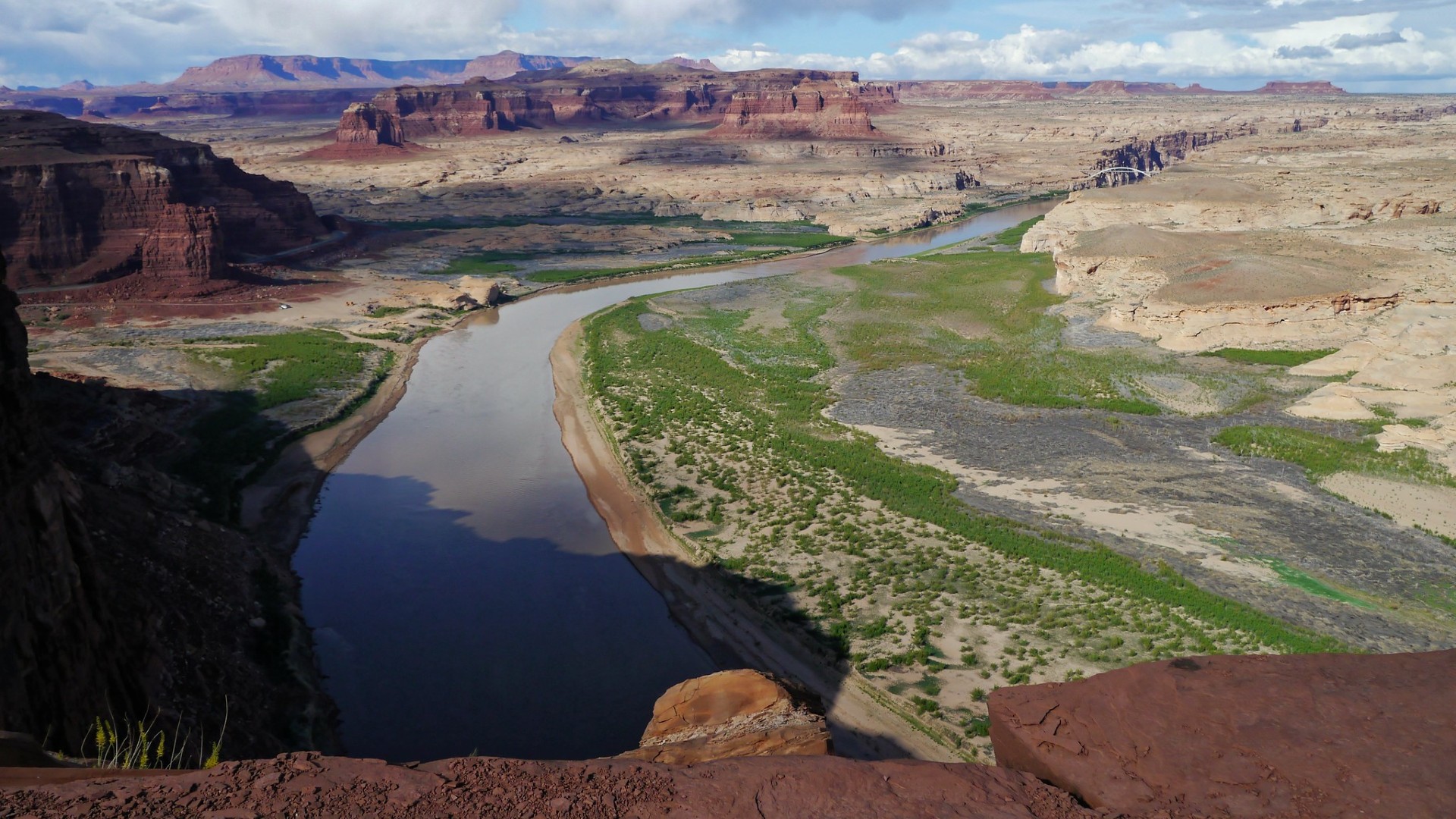Aridification In The Colorado Basin And Beyond: American West In 2nd-Worst Drought In 1,200 Years
 The Lake Formerly Known As Powell
The Lake Formerly Known As Powell
After nearly two decades of declining water flows into the Colorado River Basin, scientists have decided the word drought doesn’t cut it anymore. We need different terms, they say, to help people fully grasp what has happened and the long-term implications of climate change — not just in the Southwest, but across the country.
The term that’s caught the most attention lately is “megadrought.” It’s not a new word, but it’s one that’s come sharply into focus in recent months, following a study published this April in the journal Science that found the North American Southwest has experienced an abnormally severe drought over the past two decades — its second driest stretch in 1,200 years.
EDIT
The current megadrought in the Southwest is defined not so much by declining precipitation — although that did have an effect too — but by increasing temperatures from climate change. That’s going to continue to climb as long as we keep burning greenhouse gases. Udall and Jonathan Overpeck, dean of the School for Environment and Sustainability at the University of Michigan, have spent more than a decade studying the effect of this warming on the Colorado River, a crucial water source in the West. The river irrigates 5 million acres of farmland, provides water to 40 million people in seven states — including in the West’s biggest cities like Los Angeles, Phoenix and Denver — and helps keep the lights on in the “city of lights,” among other towns.
This exploitation has come at an ecological cost, though. Thanks to diversions for our various human uses, the river now runs dry before it reaches the sea. More water rights have been allotted than nature can provide, which is undoubtedly a management issue (although a complex one to solve), but in the last two decades this is being more acutely felt. In part that’s because less water is running off into the basin. Udall and Overpeck found in a 2017 study published in Water Resources Research that Colorado River flows between 2000 and 2014 were 19% below normal. Reduced rainfall was partially responsible. But on average, they found, about one-third of the runoff decline resulted from warming temperatures from human-caused climate change.
EDIT
https://therevelator.org/megadrought-aridification-climate/

